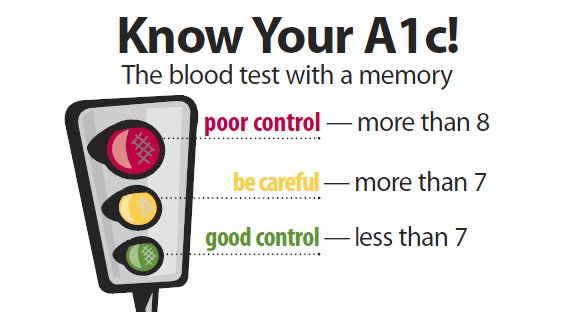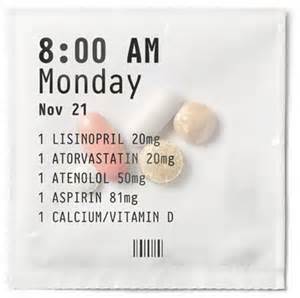Most people think that only overweight people can be Diabetics. That certainly is not true. Slim and trim people may also be diabetic and never ever know it. Most of us have had a lipid panel blood test. Their results may show everything looking good. The truth is that this test may not show if you are or are not a Diabetic, The A1c Blood Test (Glycosylated Hemoglobin A1c test) is the test, that will show, if you are a pre-diabetic or a type 1 or type 2 Diabetic. It is the gold standard test for diabetes. It will definitively show, if you have diabetes or if you are a pre-diabetic.
What is A1c?
When glucose molecules bond to a hemoglobin cell it becomes glycosylated hemoglobin . Glycosylated hemoglobin is found in everyone’s blood in various amounts. It never breaks down. Hemoglobin cells, however, live for approximately for 120 days. More glucose in the bloodstream means more A1c is formed. When the A1c test is performed, it can show the elevated A1c in the bloodstream. The doctor can then evaluate the patients need for medication.
There are many risks for diabetic, such as, nerve damage, blindness and kidney damage, to name a few. Diabetes can lead to heart problems and Alzheimer’s. Doctors strive to keep a patients blood levels in a normal range, to prevent these risks. They will recommend doses of insulin or other meds and even recommend a certified diabetic dietician to assist in developing good healthy diets. Well balanced diets are key to keeping A1c percentages.
The American Diabetes Association recommended the A1c test in 1988. The normal range for a non-diabetic is between 4% and 6%. Levels of 7% and above show a need to seek help in lowering these A1c levels. Whether you are overweight or slim, ask your doctor, if you should have an A1c blood test. You will have peace of mind knowing you don’t have diabetes or you can strive to heal yourself with the aid of your doctor.
We hope this article has been helpful. Please like us and tell your friends about Carbaholics Anonymous.com Thank you.






